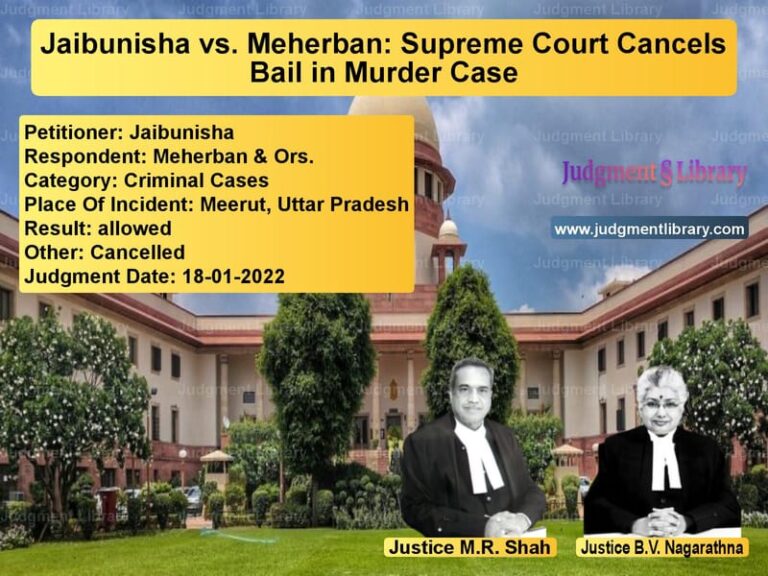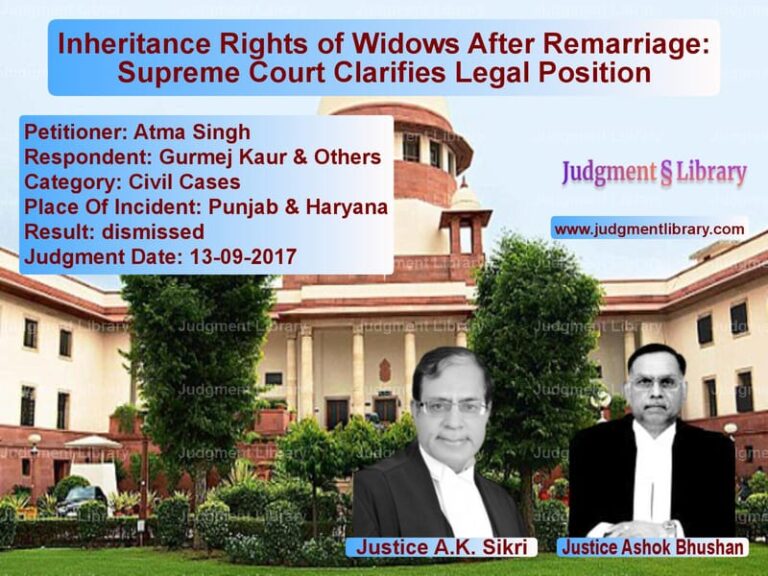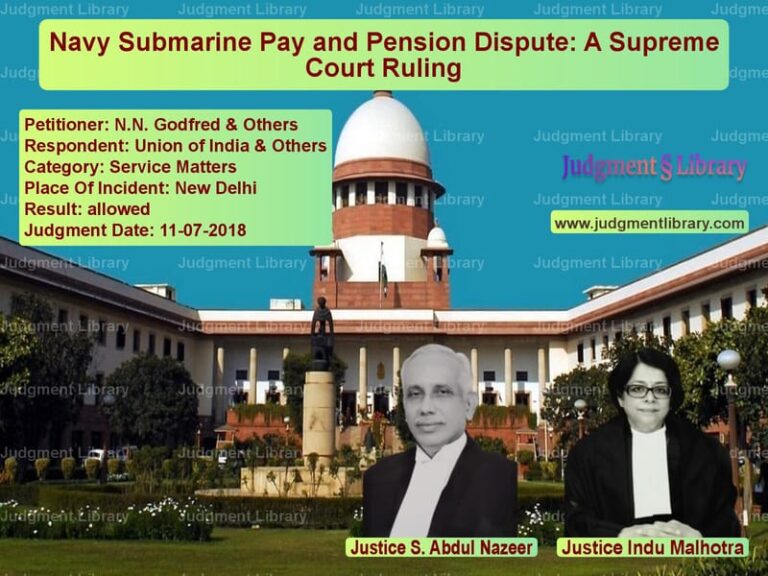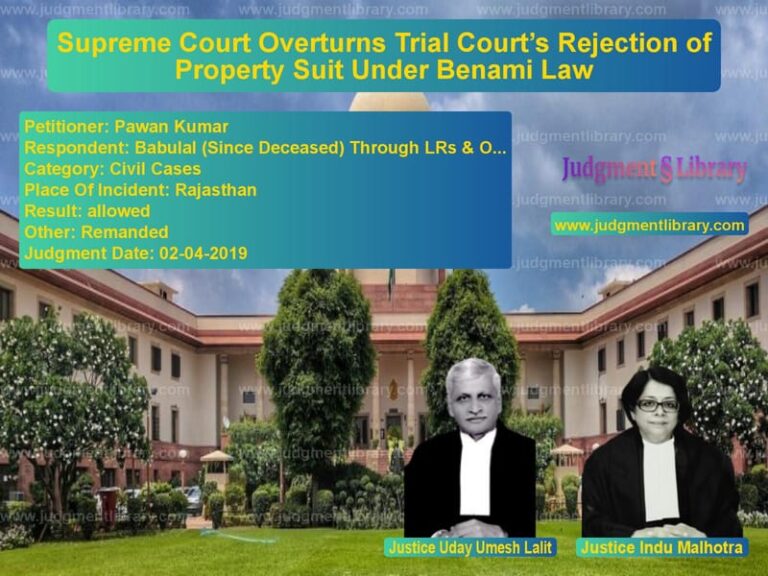Service Tax on Software Licenses: Supreme Court Rules in Favor of Quick Heal Technologies
The case of Commissioner of Service Tax Delhi vs. Quick Heal Technologies Limited revolved around the imposition of service tax on software licenses. The Supreme Court was tasked with determining whether Quick Heal’s antivirus software, supplied through CDs/DVDs or online, should be classified as ‘goods’ or a ‘service’ under tax laws. The decision had significant implications for software taxation in India.
Background of the Case
Quick Heal Technologies Limited is engaged in developing and distributing antivirus software under the Quick Heal brand. The software is supplied to customers either via physical CDs/DVDs or through an online license activation process. The central issue in the case was whether such transactions constituted a ‘service’ subject to service tax or the sale of ‘goods’ subject to VAT.
The Directorate General of Central Excise Intelligence (DGCEI) alleged that Quick Heal had not paid service tax on the supply of antivirus software licenses between March 1, 2011, and March 31, 2014. Based on this, the DGCEI issued a show cause notice demanding service tax amounting to Rs. 62.73 crore along with interest and penalties.
Proceedings Before the Tribunal
Quick Heal appealed against the demand before the Customs, Excise, and Service Tax Appellate Tribunal (CESTAT), arguing that antivirus software, once recorded on a CD/DVD and sold, qualifies as ‘goods’ rather than a service. The Tribunal ruled in favor of Quick Heal, relying on the Supreme Court’s decision in Tata Consultancy Services vs. State of Andhra Pradesh (2005), where pre-packaged software was deemed to be ‘goods’ subject to sales tax.
The Tribunal held that:
- Quick Heal’s antivirus software did not involve interactivity that would classify it as a service.
- The Central Board of Excise & Customs (CBEC) had issued guidelines stating that pre-packaged/canned software would not be considered a service.
- Since the software was transferred via physical media, it fell under the ambit of ‘goods’ rather than ‘services’.
Appeal Before the Supreme Court
The Commissioner of Service Tax Delhi challenged the Tribunal’s decision before the Supreme Court, arguing that Quick Heal’s business model involved providing updates and security patches, which amounted to an ongoing service rather than a one-time sale of goods.
Arguments Presented
Petitioner (Revenue) Arguments
- The Revenue argued that Quick Heal’s software was not merely a one-time sale but required periodic updates, which should be classified as a service.
- It contended that antivirus software had an element of interactivity, distinguishing it from pre-packaged software products.
- It relied on the decision in Bharat Sanchar Nigam Ltd. (BSNL) vs. Union of India, which discussed the distinction between ‘sale’ and ‘service’ in telecommunications.
- The Revenue claimed that the licensing model employed by Quick Heal did not involve the ‘transfer of the right to use goods’ as defined under Article 366(29A) of the Constitution.
Respondent (Quick Heal) Arguments
- Quick Heal contended that its software, once installed on a system, functioned independently without requiring user interactivity.
- The company cited Tata Consultancy Services (TCS), which held that software recorded on a medium such as a CD qualifies as ‘goods’.
- Quick Heal argued that its software licenses were a sale transaction under VAT laws and should not be subject to service tax.
- It referred to CBEC guidelines stating that pre-packaged software was to be treated as goods and not services.
Supreme Court’s Analysis and Judgment
The Supreme Court examined whether Quick Heal’s software license distribution involved the ‘transfer of right to use goods’ or was merely a service contract. The Court considered the following key factors:
Key Observations by the Supreme Court
- The Court reaffirmed that software recorded on a tangible medium such as a CD/DVD qualifies as ‘goods’ and does not constitute a service.
- It noted that Quick Heal’s antivirus software operated autonomously and did not require continuous interaction from the user.
- The Court emphasized that taxation under VAT and service tax regimes is mutually exclusive; if VAT is applicable, service tax cannot be levied on the same transaction.
- It relied on the CBEC circulars that had already clarified that pre-packaged software should be treated as goods.
- It cited BSNL vs. Union of India to reinforce that the transaction must be examined holistically to determine whether it is a sale or a service.
Key Court Statement
“Once software is recorded on a medium and marketed, it becomes goods. The artificial segregation of a software transaction into ‘sale’ and ‘updates’ for service tax purposes is not legally tenable.”
Final Judgment
- The Supreme Court dismissed the Revenue’s appeal and upheld the Tribunal’s ruling.
- It held that Quick Heal’s software licenses constituted the sale of goods and were not subject to service tax.
- The Court ruled that VAT applied to the transaction, making service tax inapplicable.
Implications of the Judgment
This ruling has significant implications for the software industry:
- It provides clarity on the taxation of pre-packaged software, affirming that such software should be treated as goods if recorded on a medium.
- It prevents tax authorities from artificially splitting software transactions into sale and service components.
- It sets a precedent for other software companies facing similar tax disputes.
- The decision strengthens the legal position of businesses that sell software licenses in physical form.
Conclusion
The Supreme Court’s judgment in this case provides much-needed clarity on the taxation of software products in India. By reaffirming that pre-packaged software licenses constitute a sale rather than a service, the ruling safeguards businesses from double taxation under VAT and service tax. This landmark decision reinforces the principles established in the Tata Consultancy Services case and ensures that software companies are taxed fairly under the existing legal framework.
Petitioner Name: Commissioner of Service Tax Delhi.Respondent Name: Quick Heal Technologies Limited.Judgment By: Justice J.B. Pardiwala.Place Of Incident: India.Judgment Date: 05-08-2022.
Don’t miss out on the full details! Download the complete judgment in PDF format below and gain valuable insights instantly!
Download Judgment: commissioner-of-serv-vs-quick-heal-technolog-supreme-court-of-india-judgment-dated-05-08-2022.pdf
Directly Download Judgment: Directly download this Judgment
See all petitions in GST Law
See all petitions in Tax Evasion Cases
See all petitions in Income Tax Disputes
See all petitions in Corporate Compliance
See all petitions in Judgment by J.B. Pardiwala
See all petitions in dismissed
See all petitions in supreme court of India judgments August 2022
See all petitions in 2022 judgments
See all posts in Taxation and Financial Cases Category
See all allowed petitions in Taxation and Financial Cases Category
See all Dismissed petitions in Taxation and Financial Cases Category
See all partially allowed petitions in Taxation and Financial Cases Category







